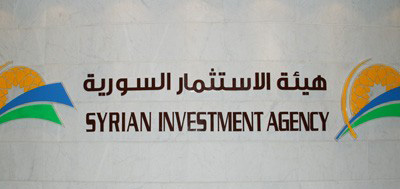
Director General of the Syrian Investment Agency (SIA) Hala Ghazal has asserted that the SIA is working hard to unify all legislations and measures related to investment since factors of making the investment sector a success are available.
In a statement to SANA, Ghazal said that legislations and administrative measures regulating investment have contributed to promoting the investment climate in general, calling on all investment-related bodies to coordinate their efforts to boost this sector.
She pointed out that investment projects are distributed according to the markets’ elements and the availability of raw materials and investment requirements.
“Laws related to supervising insurance institutions have adopted the right track, as a number of insurance companies, private banks, universities and institutes have been established,” Ghazal said, noting that the Syrian markets’ thirst for such investments has remarkably contributed to making these investments a success.
Ghazal stressed that the losses caused to the Syrian economy because of the ongoing aggression against the country and of the West’s unjust economic sanctions have led to more losses to investment, particularly in the tourism, industry, agriculture and services sectors.
She also underscored the direct negative impacts of the ongoing crisis, Syria has been witnessing, on the projects enlisted under the provisions of Investment Law No.8 of 2007, on the diversity of investment projects, on social and economic development and on the availability of commodities and services.
“A remarkable decrease in the number of investment projects in 2011 and 2012 is noticed due to the current extraordinary circumstances in the country,” Ghazal said.
She underlined that the establishment of four giant industrial zones has contributed effectively to enhancing all kinds of industrial investment.
“Investment out of the industrial zones has become a necessity for medium-sized projects and other types of enterprises, Ghazal said, adding that the government has decided to deal with some industrial areas located in different provinces the same way as the aforementioned four big industrial zones in terms of the provided advantages and facilities. She pointed out that the feasibility studies and investment maps for setting-up 100 industrial zones have been worked out.
The government has adopted a plan to finance the establishment of more than 25 industrial areas and to share the financing of a similar number of areas with local authorities and investors. The rest of industrial areas are scheduled to be proposed for direct investment to meet the need for investment outside huge industrial zones.
Rawaa Ghanam

